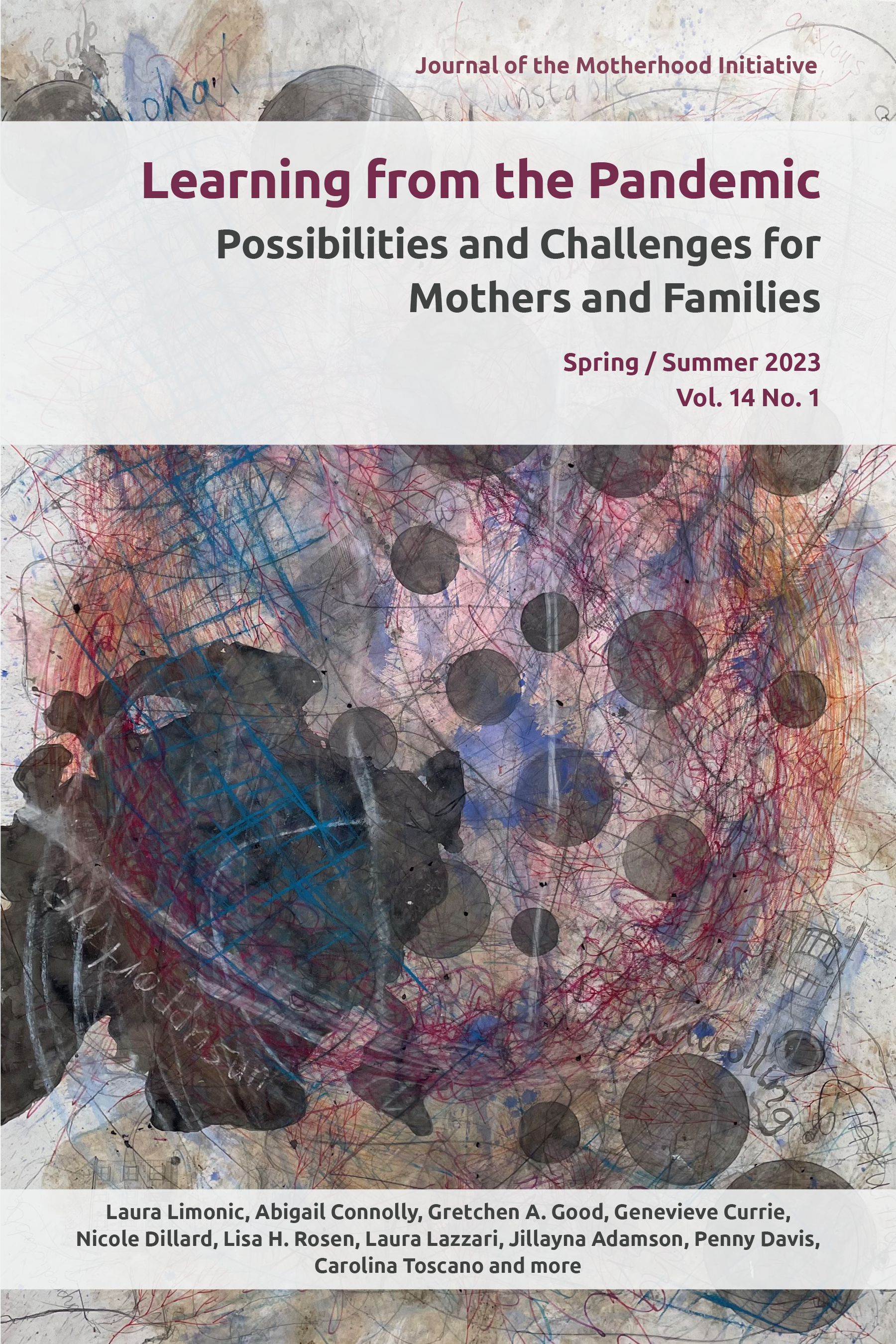Quarantine Mothering and Working at Home
How Institutions of Higher Education Supported (or Failed to Support) Academic Mothers
Abstract
This mixed methods study explores whether and how explicit policies, implicit practices, and internal communication from university administrators about aca-demic mothers’ work lives and expectations were impacted by the 2020 COVID-19 quarantine protocols. As this was a large study focussing on university policies addressing the presence of children on campus and the ways in which their enforcement or nonenforcement affected the personal and professional lives of faculty, we used purposive sampling (Palys) and snowball sampling (Patton) to distribute a survey in academic social media groups and to professional organization listservs (Palys). Among other things, the survey asked participants to report how well they thought their university was handling the COVID-19 pandemic and invited them to participate in an in-depth interview. As a result of the survey responses, we subsequently interviewed nineteen academic mothers from a range of academic disciplines, ages, and types of institutions, until we reached theoretical saturation (Strauss and Corbin). The semi-structured interview protocol included questions about the impact of COVID-19-related policies, practices, and messaging regarding children on participants’ job satisfaction, mental and physical health, as well as work-life balance. We used open and axial coding (Strauss and Corbin) and the constant comparative method (Glaser and Strauss) to analyze the data. We then triangulated the data by comparing interview and survey findings, engaging multiple researchers in the analysis, and conducting peer debriefings (Denzin and Lincoln; Lincoln and Guba). Findings highlight institutional policies and practices that serve or fail to serve faculty in terms of supporting their professional advancement in teaching, research, and service.

Downloads
Published
How to Cite
Issue
Section
License
All intellectual property in relation to material included on this site belongs to the Motherhood Initiative for Research and Community Involvement (MIRCI). All material on this site is protected by Canadian and international copyright and other intellectual property laws. Users may not do anything which interferes with or breaches those laws or the intellectual property rights in the material. All materials on the Motherhood Initiative for Research and Community Involvement (MIRCI) are copyrighted and all rights are reserved. Any reproduction, modification, publication, transmission, transfer, sale, distribution, display or exploitation of the information, in any form or by any means, or its storage in a retrieval system, whether in whole or in part, without the express written permission of the Motherhood Initiative for Research and Community Involvement (MIRCI) is prohibited. Please contact us for permission to reproduce any of our materials. This site may include third party content which is subject to that third party's terms and conditions of use.

